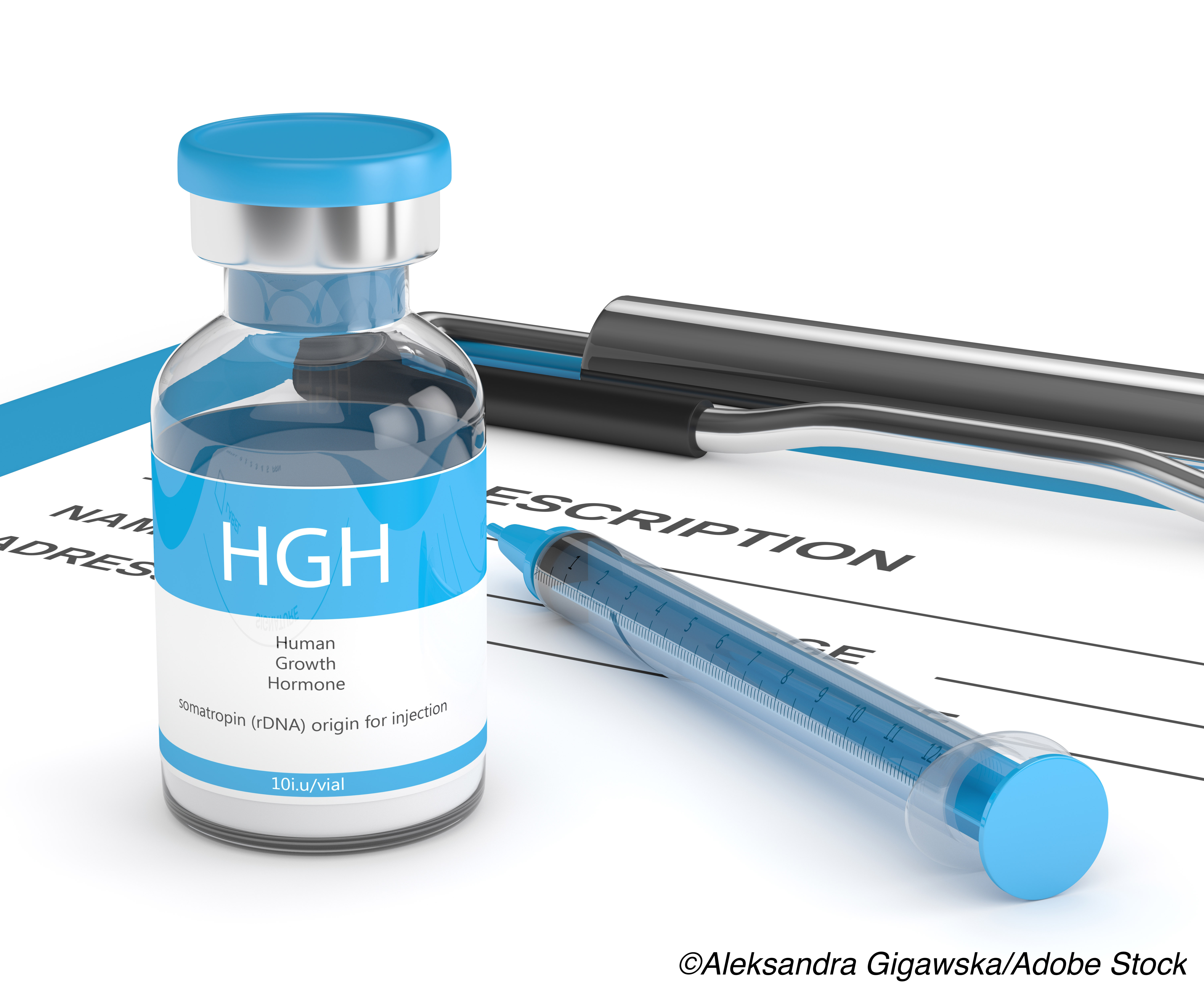
“Concerns regarding long-term safety were raised in 2012 by a study of a French cohort of children treated previously with [recombinant human growth hormone] rhGH for [growth hormone deficiency] GHD, SGA, and [idiopathic short stature] ISS, in which increased risks of overall cardiovascular mortality were reported; subsequent follow-up reported increased risk of cerebrovascular morbidity. However, owing to several methodological limitations, robust long-term studies are needed,” wrote Anders Tidblad, MD, PhD, of the Karolinska Institutet, Karolinska University Hospital, Stockholm, Sweden, and colleagues.
This nationwide, population-based study included 3,408 patients with isolated GHD, SGA, and ISS who had been treated with rhGH during childhood and adolescence (ages 0-18 years).
Most patients and controls were male (67.7%), mean age at the end of the study was 25.1 years, and median follow-up was 14.9 years, for a total of 797,125 person-years. For each patient, 15 controls (n=50,036) who had been age-, sex-, and region-based matched were randomly selected from the general population.
The primary outcome was a first recorded cardiovascular event during follow-up, and the first severe cardiovascular event comprised the secondary outcome.
Data were collected prospectively using Swedish national health and population registries. In all, 1,809 cardiovascular events occurred, for a crude incidence rate of 25.6 events per 10,000 person-years for patients, compared with 22.6 per 10,000 person-years for controls.
The risk of cardiovascular events was higher in patients treated with growth hormone compared with controls (HR: 1.69; 95% CI: 1.30-2.19) and was especially high in women (HR: 2.05; 95% CI: 1.31-3.20) compared with men (HR: 1.55; 95% CI: 1.12-2.13).
All subgroups of patients treated with growth hormone had increased risk of cardiovascular events, with the greatest risks seen in those treated for SGA:
- SGA: HR: 1.97 (95% CI: 1.28-3.04).
- GHD: HR: 1.66 (95% CI: 1.21-2.26).
- ISS: HR: 1.55 (95% CI: 1.01-2.37).
Higher risk for overall cardiovascular disease was associated with a longer duration of rhGH treatment (HR: 2.08; 95% CI: 1.35-3.20) as well as total cumulative dose (HR: 2.05; 95% CI: 1.18-3.55).
Tidblad and colleagues found an adjusted HR for severe cardiovascular disease of 2.27 (95% CI: 1.01-5.12). A total of 167 first severe CVD events occurred during follow-up, with crude incidence rates of 3.48 (95% CI: 2.19-5.52) events per 10,000 person-years among patients, compared with 1.97 (95% CI: 1.68-2.32) events per 10,000 person-years among controls. Patients treated with rhGH had an increased hazard compared with controls in both the crude and full models, but in the restricted model, these differences did not reach significance (HR: 1.56; 95% CI: 0.73-3.34).
Finally, adjusted HRs in the full model were 1.92 (95% CI: 0.72-5.11) for male patients, and 3.68 (95% CI, 0.84-16.08) for female patients.
Because growth hormone treatment has been available for over 6 decades, the current need for such studies may not be apparent. In her accompanying editorial, Adda Grimberg, MD, of the Children’s Hospital of Philadelphia, took a closer look at why such studies are still of vital importance.
“Some question why the safety of growth hormone treatment still is scrutinized so closely and repeatedly. After all, pediatric growth hormone treatment dates back to 1958, and the active ingredient is molecularly identical to the endogenous hormone, so it is not a foreign drug or chemical. The answer lies in 3 domains: worrisome indirect evidence, challenges and limitations in the direct evidence, and the changing world of growth hormone treatment,” she wrote.
According to Grimberg, the change from cadaveric growth hormone to rhGH in 1985 “revolutionized the field because suddenly the supply became theoretically limitless, leading to a great expansion of growth hormone treatment in terms of both dosing regimens and indications treated.” Indeed, the number of treated children less than 18 years old nearly tripled between 2001 to 2016 (from 5.1 per 10,000 to 14.6 per 10,000).
Grimberg also cited the lack of long-term data on the oldest recipients of pediatric rhGH treatment, who are now in their 40s and 50s.
In addition, the three conditions studied by Tidblad and colleagues are also associated with an increased lifetime risk of cardiovascular disease, further confounding studies of the link between cardiovascular events and pediatric growth hormone treatment.
“[F]rank review of the current knowledge base and its limitations is required to enable patients and their families to make appropriately informed decisions. The centrality of treatment safety to patient-family decision-making underscores the importance of continued scrutiny of growth hormone safety as the treatment and its recipients continue to evolve,” Grimberg concluded.
Study limitations include confounding by indication, the limitations of statistical power when studying rare events expected to occur later in life, and the need for continuous follow-up.
-
Childhood treatment with recombinant human growth hormone is associated with an increased risk of cardiovascular events in early adulthood, according to results from Swedish researchers.
-
Although treated children had higher absolute risks for overall and severe cardiovascular disease in adulthood compared with matched controls, absolute risks remained low.
E.C. Meszaros, Contributing Writer, BreakingMED™
This study was supported by the Swedish Research Council, the Stockholm City Council, the Karolinska Institute, the Society for Child Care, the Sahlgrenska University Hospital, and the Stockholm County Council’s combined clinical residency and PhD training program.
Tidblad has received grants from the Society for Child Care and Stockholm County Council during the conduct of the study and personal fees from Pfizer, Inc, outside the submitted work.
Grimberg has served as a member of the Steering Committee, Pfizer International Growth Study Database, and as a consultant for the Pediatric Endocrine Society GH Deficiency Knowledge Center, sponsored by Sandoz AG.
Cat ID: 683
Topic ID: 85,683,914,682,683,925



Create Post
Twitter/X Preview
Logout